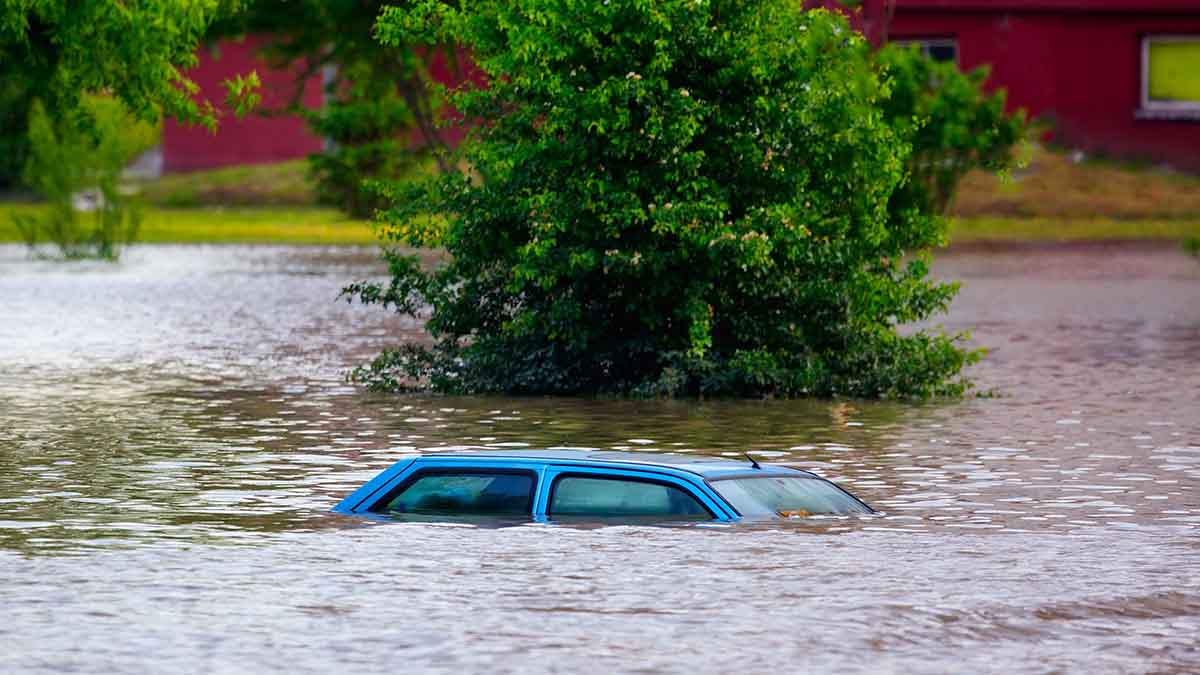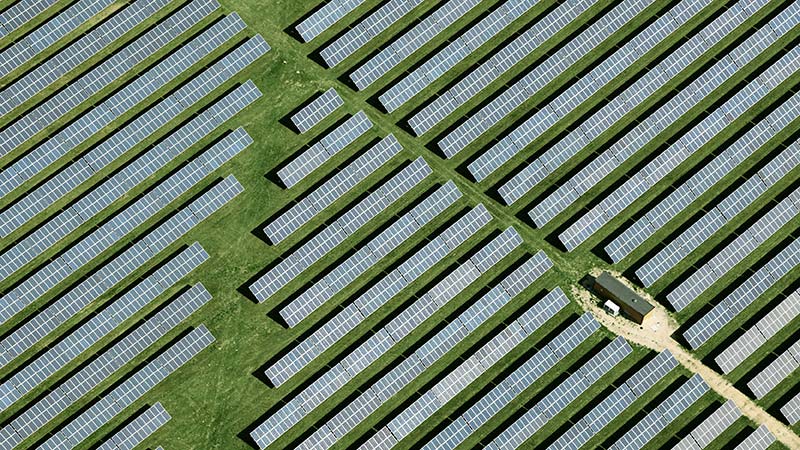The 10 facts that prove we're in a climate emergency
The UK has declared a climate emergency and not enough is being done about it. These are the climate change facts you need to know in 2019
It is real and it is already happening. Human-caused climate change has already been proven to increase the risk of floods and extreme rainfall, heatwaves and wildfires with implications for humans, animals and the environment.

©WIRED
And things aren't looking good for the future, either. With the concentration of carbon dioxide (CO2) in the atmosphere projected to maintain an average 411 parts per million (ppm) throughout 2019, there is a long way to go before the ambitious goals of the Paris Agreement are met. To put this into context: atmospheric CO2 hovered around 280 ppm before the start of the Industrial Revolution in 1750 – the 46 per cent increase since then is the main cause of global warming. Reliable temperature records began in 1850, and our world is now about one degree Celsius hotter than in the “pre-industrial” period.
The Paris Agreement focuses on keeping the global temperature rise in this century to well below two degrees Celsius above pre-industrial levels – ideally to 1.5 degrees Celsius – to avoid “severe, widespread and irreversible” climate change effects. But, if current trends continue, the world is likely to pass the 1.5 degrees Celsius mark between 2030 and 2052 unless it finds a way to reach net zero emissions.
Here's everything you need to know about where we are with the climate crisis.
1. Our summers and winters keep getting warmer
San Francisco, British Columbia, and Delhi all reported all-time record June temperatures this year, suggesting heat waves are beginning anew in the Northern Hemisphere this summer. In 2018, the UK experienced the hottest summer since 2006, and a scientific study into last year’s data showed that such heat waves are now 30 times more likely due to climate change.
And all of this is set to become much more common. There is a 12 per cent chance of average temperatures being as high as the UK experienced last year; this compares with a less than half a per cent chance that would be expected in a climate without human-caused climate change.
But the country is not only experiencing soaring temperatures in summer. Temperatures of 21.2 degrees Celsius were recorded in London’s Kew Gardens on February 26, 2019. It was the warmest winter day the UK has ever experienced. Parts of the country were hotter than Malibu, Barcelona, and Crete. Milder winters can have detrimental effects on hibernating mammals, migratory birds and flowering plants.
2. Indonesia will move its capital city as its current one is sinking
Sea levels are rising at the fastest rate in 3,000 years, an average three millimeters per year. The two major causes of sea level rise are thermal expansion – the ocean is warming, and warmer water expands – and melting of glaciers and ice sheets that increases the flow of water to the sea. Antarctica and Greenland hold enough frozen water to raise global sea levels by about 65 meters if they were to melt completely. Even if this scenario is unlikely, these ice masses are already melting faster. And island nations and coastal regions are feeling the impact.
Earlier this year, Indonesia announced its plans to move the capital city away from Jakarta. Home to over ten million people, some parts of Jakarta are sinking as much as 25 cm per year. Jakarta’s precarious position is thanks to a combination of two factors – rising global sea levels and land subsidence as underground water supplies have been drained away to meet water needs.
This grim picture is repeated elsewhere too. In the Pacific, at least eight islands were swallowed by the sea in the last century, with Tuvalu, Kiribati and the Marshall Islands feared to be the next low-lying nations to be wiped off the map.
3. Average wildlife populations have dropped by 60 per cent in just over 40 years
The average size of vertebrate (mammals, fish, birds and reptiles) populations declined by 60 per cent between 1970 and 2014, according to the biennial Living Planet Report published by the Zoological Society of London and the WWF. That doesn't mean that total animal populations have declined by 60 per cent, however, as the report compares the relative decline of different animal populations. Imagine a population of ten rhinos where nine of them died; a 90 per cent population drop. Add that to a population of 1,000 sparrows where 100 of them died – a ten per cent per cent decrease. The average population decrease across these two groups would be 50 per cent even though the loss of individuals would be just 10.08 per cent.
Whatever way you stack the numbers, climate change is definitely a factor here. An international panel of scientists, backed by the UN, argues that climate change is playing an increasing role in driving species to extinction. It is thought to be the third biggest driver of biodiversity loss after changes in land and sea use and overexploitation of resources. Even under a two-degree Celsius warming scenario, five per cent of animal and plant species will be at risk from extinction. Coral reefs are particularly vulnerable to extreme warming events; their cover could be reduced to just one per cent of current levels at two degrees Celsius of warming.
Read the full article here.
About the author
Sabrina Weiss is a staff writer at WIRED, UK
Our great sense of curiosity at Vontobel means we are attentively following scientific research in many key areas. This helps us recognize new investment opportunities early on. That’s why our thematic portfolios and thematic investments also reflect megatrends such as digitization, as we consider companies that are making valuable contributions to solving global challenges.
I am interested in thematic investments
I am interested in thematic funds
Who are we? How do we live today? And how will digitization change our lives? How the future will unfold is preoccupying society more than ever, with engineers, doctors, politicians – each one of us, in fact – seeking answers. This report on climate change is one of many contributions that shed light on the theme “Digitized Society” from a new, inspiring perspective. We are publishing them here as part of our series “Impact”.








